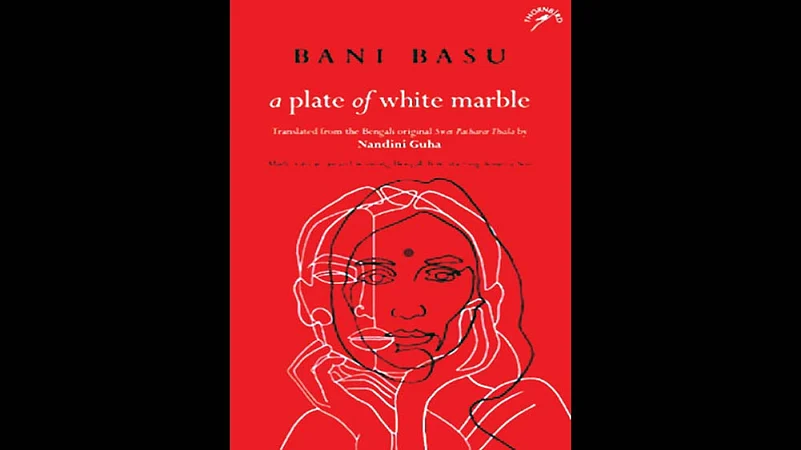What is the status of widows in our ‘progressive’ society? Has anything changed after the legal empowerment of widows? Bani Basu’s sensitive Bengali novel, Swet Patharer Thala, also made into an award-winning film starring Aparna Sen, has been translated? into English by Nandini Guha as A Plate of White Marble.
Broken Calacatta
A woman in mid-century Calcutta breaks free of the soul-crushing customs of widowhood to reclaim her self in this iconic novel

In the wealthy, educated Bhattacharjee household in 1950s Calcutta, when the eldest scion dies of a heart attack, the young wife, Bandana,? finds her identity altered to that of a traditional widow. Her bewildered five-year-old son Abhiroop cannot recognise his mother in a stark white saree, shorn of ornaments. She is a shadow that suffers trauma, illness and hal--l--ucination. The bedecked mother-in-law bewails her ill luck every time she serves Bandana her frugal meal and the father-in-law assumes she will hand over all personal assets to the family coffers. Intuitively, the little child initiates small beh-avioural changes in his mother and Bandana starts wearing light coloured sarees and pearl ear-studs to please him.
Bani Basu’s iconic novel may seem like a throwback to the 19th century, but it’s a modern story convincingly located in urban Bengal. The acute portrayal of Bandana’s split identity is the crux of the novel—a silent rebel against widowhood practices, Bandana is also trapped in her own hesitance in breaking social codes. Unlike the widowed characters in the novels of Tagore and Saratchandra, Basu’s new woman has the law on her side. She needs to battle the inherited beliefs of her own upbringing, an inner voice drumming those dreaded words, “You are an orphan...you are a widow...you are finished.”
Rescue comes from an unexpected source—an elderly, bachelor ‘Kaka’ (uncle), Somnath babu, an itinerant sojourner in the Himalayas and a free spirit who had abjured domestic ties. He is shocked by the harsh treatment of Bandana, now emaciated by limited food, forbidden any social converse and denied any normal activity. The growing boy is her slight thread by which to steer her barren existence. Kaka convinces the family that he will take her and Abhiroop back to her now-empty parental home and give her some direction.
In the forgotten familiarity of her childhood home, Bandana contends with her intellectual enquiry on widowhood. “Help me to grow against my wishes....I am living within a hard shell,” she confides in Kaka, but the wise man knows that the bird will fly only when she discovers the strength of her wings. Basu’s prose turns lyrical as it describes the gradual, often painful unfurling of the new woman, a single woman, a working woman, in a male-dominated society. There is angst but no bitterness, uneven tracks but no derailment. In the process, Bandana and the novelist ask questions: Why are widowers not subjected to the privations that widows have to endure? Why are single women the object of curiosity for men and women equally? How can a widow’s mere presence pollute a religious ritual such as marriage?
In other words, the baggage of patriarchal assumptions about the role of women tumbles out of a not so well-locked cupboard called tradition. The key to change, implies Basu, is held in the hands of men as well as women, for the unthinking coercion of women into predetermined roles is inflicted often by the women of the family. Like Bandana, many women have internalised these identities, never quite daring to question social custom. Fortunately, Basu never becomes strident. She remains within the bounds of fiction as the gentle, persuasive voice that debates both sides of the argument, showing the pro-active laws to be external while a woman’s selfhood a delicate, fragile emergence. With the eye of an ecofeminist, Basu places women within the realms of the seasonal changes in Bengal—stormy and dramatic, calm and pristine—each day, each woman her unique self, but forever masked and secret. Nandini Guha has gathered the nuances of such writing, giving us a novel in English which remembers its Bengali original? with empathy.
(Malashri Lal is member, English Advisory Board, Sahitya Akademi)

















